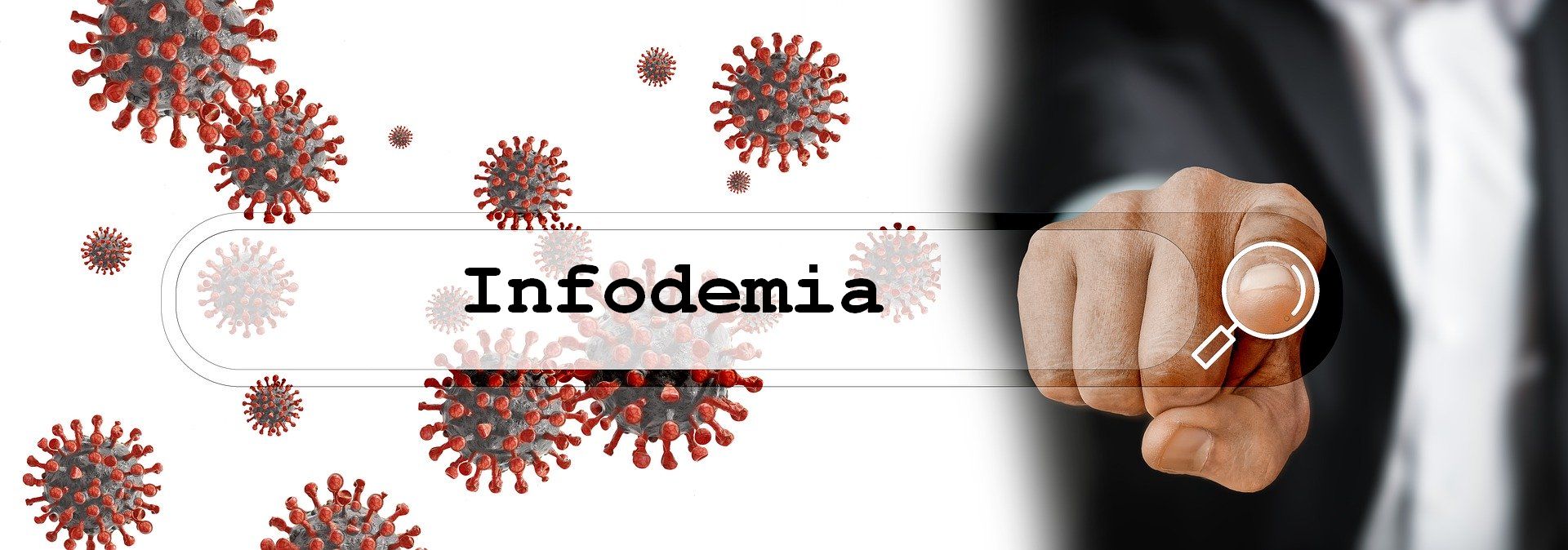During the pandemic of coronavirus which lasts since March, every day we are bombarded with impossible not only to verify but even to assimilate amount of facts, opinions, data but also disinformation. No surprise then, that some researchers get back to known for over a decade term “infodemic”.
To learn more about what an “infodemic” is we read the article on Merriam-Webster website. Merriam-Webster i san American textbook publisher, best known for its quality dictionaries.
As the authors notice: “infodemic” is the intuitive combination of “information” and “epidemic”. It is fast and wide spread of both exact and inaccurate information about something – for example an illness.
“As facts, rumours and concerns mingle and disperse, it is difficult to get basic information about the problem. The term “infodemic” was created in 2003 and was used again in the times of COIVD-19”, we read. It was first use by David Rothkopf, publicist and political scientist of the Washington Post. It was during far less spread and deadly pandemic of SARS:
SARS is the history of not one but two epidemics. The second epidemic, the one that emerged from the first pages of newspapers has far bigger consequences than the illness itself. It is because it is not a viral epidemic but rather “informational epidemic”. It transformed SARS, severe acute respiratory syndrome, from the regional Chinese healthcare crisis into the global economic and social disaster. This epidemic of information, infodemic, makes the public healthcare crisis more difficult to control and master”, wrote Rothkopf and added:
“What exactly do I mean by “infodemic?” Few facts mixed with the fear, speculations and rumours, amplified and quickly transmitted to all the world by modern information technologies. All of it influenced national and international economy, politics and even the security in the way completely unproportionable to original reality. We can observe this phenomenon in the last few years with growing frequency – not only in our reaction to e.g. SARS but also for the terrorism and even relatively minor occurrences”.
It sounds familiar, right? And the year 2003 is the informational prehistory – the time of barely adopted cell phones, the time before smartphones, social networks and widely accessible Internet. It does not shock then, that in the times of COVID-19 the “infodemic” returned with the power unseen before, even though most of us do not even realise it.
“We are not only fighting the epidemic; we are fighting the infodemic” said Tedros Adhanom Ghebreyesus, the director general of the World Health Organization during the meeting of foreign and security policy experts in Munich in Germany in the middle of February. Ghebreyesus admitted then that the fake news “spread more quickly and more easily then this virus [COVID-19 – red.]”.
We know it perfectly – every day our information channels are full in few dozen percent of all kind of information about COVID-19. To see it better, it is worth illustrating it with the data by PAHO (Pan American Health Organization). It is an international public health organization working on improving the health and life standard of the inhabitants of both Americas. In the May 2020 they wrote:
“in the last 30 days under tag “COVID-19” 361 million videos were published on YouTube. In the same time, since the outbreak of the pandemic over 19 thousand articles were published on Google Scholar. Only in march on Twitter there posted 550 million tweets containing words: coronavirus, corona virus, covid19, covid-19, covid_19 or pandemic”. How much of it is there today? It is easy to imagine, although it has no sense to do it – it is beyond comprehension
Will infodemic, like the coronavirus, stay with us for longer? It seems so. Easier access to media, the phenomenon of infotainment (merge of information and entertainment) but also well known to us political, business and any other kind of disinformation – all of it makes us probably condemned to continuously overcharge our brains. Also, it seems there is no vaccine for it. We can only dose the information and use only relatable sources.
WM / Merriam-Webster.com
Phot. pixabay.com
Follow StopFake PL on Facebook, Twitter, Instagram and Telegram.





